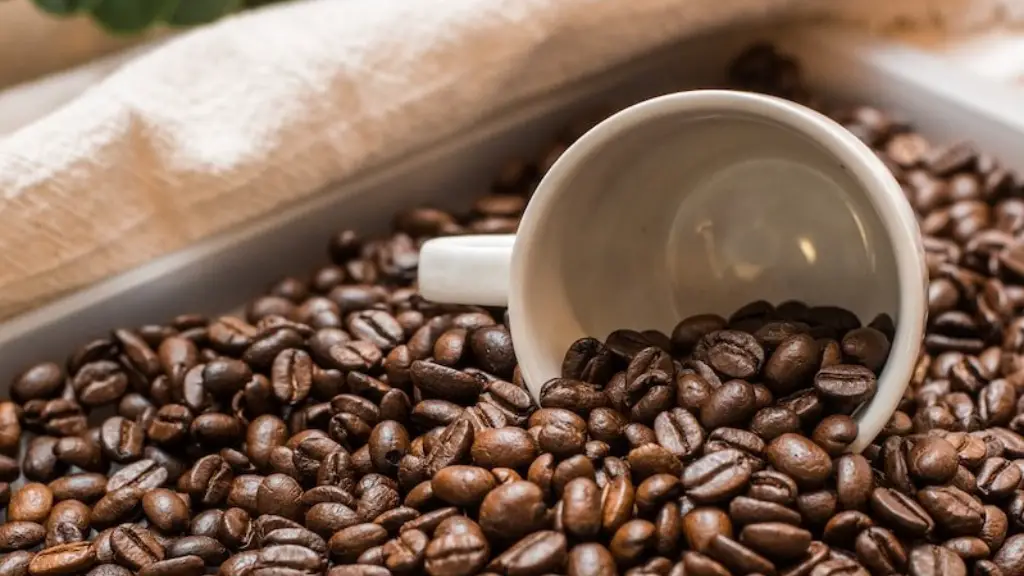As much as we all love our morning cup of joe, it’s become something of a scientific mystery as to whether or not it’s safe for us to consume before or after a workout. On the one hand, there are those who say that caffeine provides a great boost of energy and has been scientifically proven to significantly improve physical performance. On the other hand, there are those who believe that drinking coffee before or after a workout can detrimentally affect the body’s ability to safely and effectively exercise.
According to the National Collegiate Athletic Association, the safe consumption of caffeine has been scientifically proven to improve physical performance due to its ability to increase fat oxidation and to increase muscle contractions. This means that drinking a moderate amount of coffee before and after a workout can help to improve physical performance, thus allowing exercisers to reach their desired goals faster. For example, studies have shown that consuming just three cups of coffee one hour prior to exercise can lead to improved endurance and help to reduce muscle fatigue.
Yet, conversely, there is also the risk of excessive consumption of caffeine either before or after a workout. Consuming too much caffeine can lead to a number of side effects such as accelerated heart rate, high blood pressure, and increased blood sugar levels. In some cases, excessive caffeine consumption can also cause dehydration, exhaustion, and heart palpitations. For this reason, it is important to be aware of your body’s individual caffeine tolerance and to adjust your consumption accordingly.
It is also important to note that the intensity of the workout can greatly affect the body’s response to caffeine. For those who engage in strenuous workouts that last longer than one hour, may find that drinking coffee during the workout can be counterintuitive and could detrimentally affect their performance. Caffeine can also affect the body’s ability to absorb and process key nutrients, making it beneficial to consume coffee after a workout instead of during.
Overall, while it is beneficial to consume coffee in moderation both before and after a workout, it is important to take into account your individual body’s tolerance as well as the intensity of your workout in order to make an informed decision about the safe consumption of caffeine.
Can Caffeine Increase Muscle Mass?
Muscle mass is largely determined by the amount of resistance one can generate against a certain amount of weight. The higher the resistance, the better the gains in muscle mass a person is likely to experience. Caffeine is often thought of as a performance enhancer when it comes to workouts due to its ability to increase adrenaline levels and energy levels in the body. This can lead to increased muscular strength and endurance, which are both important for muscle mass gains.
However, it’s important to note that caffeine alone cannot increase muscle mass. It is important to follow a well-balanced diet and exercise regimen in order to get the most out of your workouts and to see significant increases in muscle mass. In addition, while caffeine can provide a boost of energy and alertness, it is important to note that caffeine can also act as a diuretic and can lead to dehydration, which can detrimentally affect muscle growth.
All in all, caffeine can be a useful tool for those looking to gain muscle mass but it should not be relied on as a standalone solution. Instead, it should be used together with a consistent exercise program and a healthy diet in order to achieve the best possible results.
What are the Dietary Guidelines for Caffeine Consumption?
The dietary guidelines for caffeine consumption largely depend on your individual body’s reaction to it. For healthy adults, the American Heart Association recommends consuming no more than 400mg of caffeine per day. This equates to approximately 4 cups of coffee. It is also important to note that caffeine can be found in more than just coffee and can be found in energy drinks, tea, chocolate, and even certain medications. Therefore, it is important to take into account the full range of caffeine sources when determining your daily limit.
It is also important to note that certain health conditions can affect the way that your body reacts to caffeine and can lead to an increased sensitivity to its effects. For this reason, it is important to consult with your doctor before increasing your caffeine consumption. Additionally, pregnant women and post-menopausal women are particularly vulnerable to caffeine’s effects and should consult with their doctor before consuming any caffeine.
Can Coffee Help With Weight Loss?
Though coffee is often thought of as a weight-loss agent due to its natural metabolism boosting capabilities, it is important to note that, like any other food item, coffee should be consumed in moderation in order to achieve maximum results. Having too much coffee can lead to increased levels of cortisol, the stress hormone, which can impede weight loss efforts. In addition, it is important to note that adding sugars, syrups, or other calorie-laden ingredients to your morning cup of joe can negate any positive metabolic effect and can actually add to your calorie consumption.
One way to use coffee for weight loss is to drink it in the morning to kick start your metabolism and give you a much needed energy boost for the day. This can help to keep you energized and can help to reduce food cravings throughout the day. In addition, drinking a black coffee before a workout can help to increase performance during the workout and can help to burn calories more quickly. However, it is important to note that, while black coffee can be used to enhance weight loss efforts, it should not be relied on as a standalone solution for successful weight loss.
What Factors Should I Take into Consideration Before Drinking Coffee?
When it comes to consuming coffee, it is important to keep in mind your individual body’s reaction to it as well as the intensity of your workout. Additionally, certain medications, such as blood thinners, can interact negatively when mixed with caffeine so it is important to consult with your doctor before consuming caffeinated beverages. Drinking coffee on an empty stomach can also cause some unpleasant side effects such as nausea, headaches, and heartburn. For this reason, it is important to have a light snack or meal before consuming coffee.
Finally, if you choose to drink coffee before or after a workout, be sure to stay within the recommended daily limit of 400mg of caffeine and be aware of the electrolyte balance in your body. This is especially pertinent if you plan to workout for longer than one hour as you may be at risk of dehydration.



